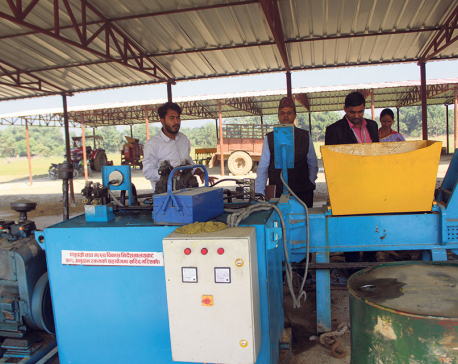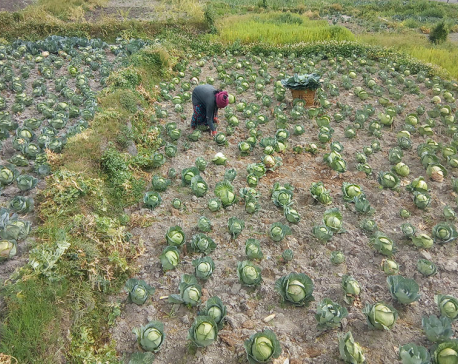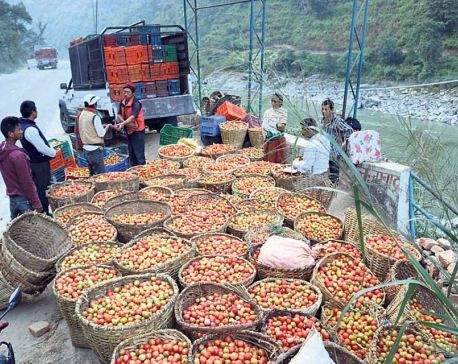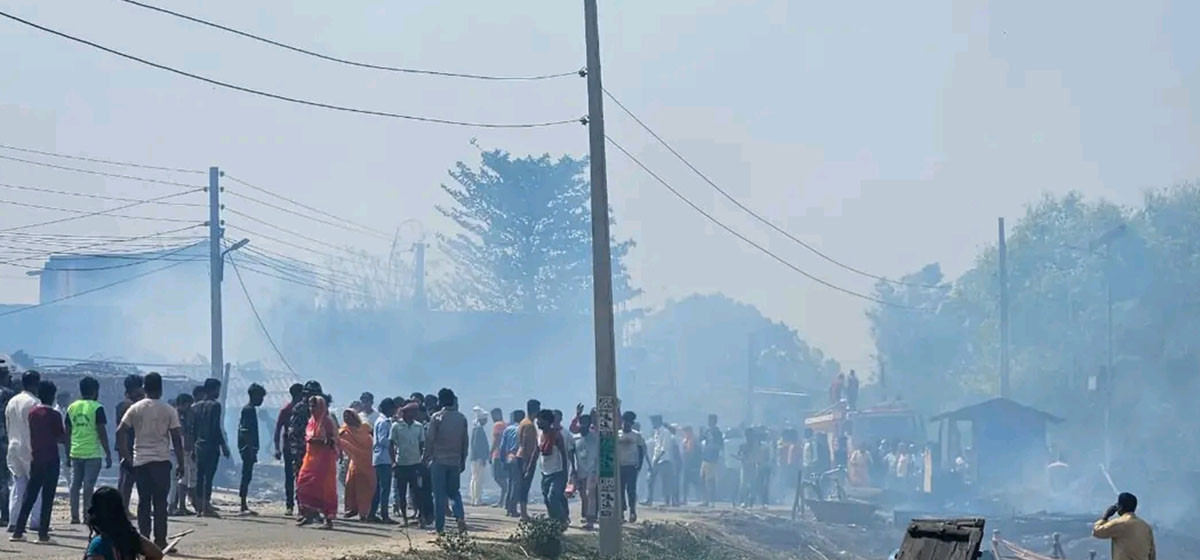
OR
Khaniyabas locals attracted toward commercial vegetable farming
Published On: March 22, 2020 01:30 PM NPT By: Sarita Shrestha

DHADING, March 22: Locals of Khaniyabas in Dhading district used to depend on Dhading Besi for vegetables for everyday consumption but now they have started commercial vegetable farming which has helped to generate income and minimize dependency for vegetables from other areas.
Sandip Tamang, a local of Khaniyabas Rural Municipality-4, has started commercial vegetable farming for the first time. “No one had started commercial vegetable farming in the village, and we had to depend on other areas for our day to day consumption,” said Tamang, “I started commercial vegetable farming and have planted vegetables inside the tunnel.”
Earlier, the locals used to plant maize and millet as the land is steep. According to Tamang, income from production of maize and millet was very low and he became attracted towards vegetable farming. Currently Tamang is busy in looking after his vegetables. He has planted tomato, bitter gourd, cucumber and chilly.
Most of the youths of the village have gone to foreign countries for employment. “Vegetables produced inside the tunnel have good production rate and less fear of any disease and insects,” said Sandip, “I am planning to run my household expenses from earnings from vegetable farming. It is my first time being involved in commercial vegetable farming and if I am successful then I am planning to expand it.”
Dhading district is famous for production of vegetables and food grains. Vegetables produced in Dhading are sent to Kathmandu, Narayanghat, Pokhara and Nepalgunj. Dhading contributes 18% of vegetables sold in Kathmandu. 6,000 hectares of land is used for vegetable farming in the district.
Similarly, Mina Tamang of Khaniyabas Rural Municipality-4, has also started vegetable farming in a tunnel for the first time. Tamang used to plant vegetables around her house and it was enough for her kitchen. But after gaining technical knowledge on commercial vegetable farming, she has started commercial vegetable farming. “Land in the village were left idle,” said Tamang, “I have used the land for vegetable farming with tunnel method.”
Many locals have now turned to tunnel farming for commercial vegetable production. They have also received training and technical knowledge to lower the use of chemical pesticide in vegetable farming.
According to Tamang, a tunnel can be constructed with bamboo and plastic and vegetable farming can be carried out all year round. “In tunnel farming, irrigation is done through droplets of water, so irrigation can be done with less water,” said Tamang, “This technique has helped to increase production and generate more income for us.”
Purnima-Bahini Project has supported tunnel farming for commercial vegetable farming. According to Umesh Adhikari, project coordinator of Purnima-Bahini Project, they have been supporting the locals by sharing technical knowledge, nursery seeds, organic insecticide and many more. “We have been providing technical knowledge to the farmers to make them entrepreneurs through commercial vegetable farming,” said Adhikari, “The program was operated with an aim to help differently abled people, single women and senior citizens to help them to generate income and provide for their families.”
You May Like This

Agriculture grant misused in Province 5
RUPANDEHI, Nov 17: Adhikari Vegetable Farm of Suddhodhan Rural Municipality-3 of Rupandehi had got a grant of Rs 400,000 from... Read More...

Women’s growing attraction toward vegetable farming
BAJHANG, April 7: Debu Khadka of Chainpur-10 remains busy working on her farm from dawn to dusk. However, she hardly... Read More...

Vegetable farming changes fortunes of Chepangs
DHADING, Nov 1: There was a time when managing two square meals a day was a challenge for the people of... Read More...




Just In
- SC issues short-term interim order to govt and TU not to take immediate action against TU legal advisor Khanal
- National consultation workshop advocates to scale up nutrition smart community in Nepal
- Patan High Court issues short-term interim order to halt selection process of NTB’s CEO
- NEPSE inches up 0.15 points; daily turnover increases to Rs 2.53 billion
- Bagmati Govt mandates tri-lingual signboards in offices
- Inferno destroys 70 houses in Mahottari
- Health ministry urges precaution against heatwave
- Jhapa road mishap update: Three deceased identified















Leave A Comment